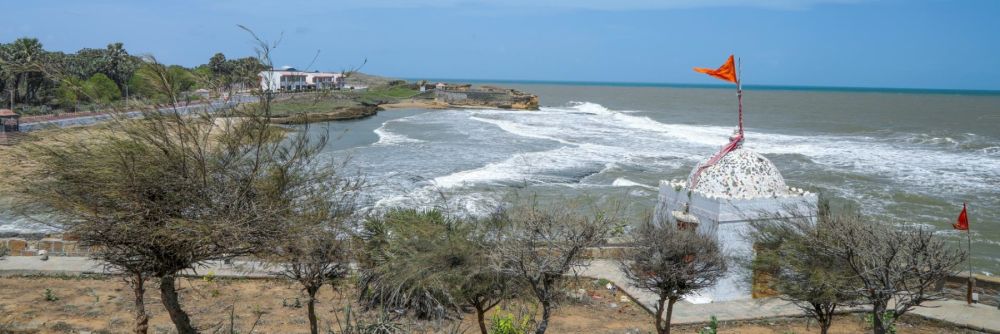

Located on a beautiful island off the southern coast of Gujarat, India, the Jallandhar Shrine is a significant religious destination and a testament to the rich cultural heritage of Diu. This serene and picturesque locale has attracted visitors for many years, playing a vital role in the history of tourism in this coastal town.
The Jallandhar Shrine is named after a mythical demon known as Jallandhar, who, according to Indian mythology, was slain by Lord Krishna. The shrine features a beautiful temple dedicated to the Goddess Chandrika. The proximity of the shrine to the Arabian Sea offers breathtaking views, blending spiritual solace with natural beauty.
Tourism at the Jallandhar Shrine has historical roots, with the location being a longstanding place of pilgrimage for devotees. The heritage of Diu, amalgamating Portuguese colonial past with traditional Indian culture, has made it a unique destination for visitors.
As India gained independence and developed its infrastructure, tourism in Diu, including the Jallandhar Shrine, began to flourish. The introduction of better roads, improved accommodation options, and enhanced amenities added to the appeal of the shrine as a tourist attraction.
In recent years, tourism trends have seen a shift with an emphasis on sustainable and responsible travel. Visitors to the shrine often engage in clean-up activities to maintain the sanctity of the area, and there is a collective effort to preserve the natural surroundings.
Adventure tourism is also on the rise, with many tourists combining their spiritual journey to the shrine with water sports and other activities available on the island of Diu. Furthermore, Diu’s annual festivals, which celebrate the region's culture and history, attract additional footfalls to the Jallandhar Shrine during these times.
The global pandemic did not spare the tourism sector in Diu. The Jallandhar Shrine, like other destinations, saw a significant drop in visitors. However, with the easing of restrictions and the implementation of safety protocols, the shrine is gradually seeing a resurgence of tourists.
The future of tourism at Jallandhar Shrine looks promising. Continuous efforts are being made to improve the tourist experience while preserving the natural and spiritual essence of the shrine. The local government has been proactive in promoting Diu as a destination for both domestic and international travelers, ensuring that the Jallandhar Shrine remains a cherished emblem of the island’s spiritual and cultural landscape.
Whether you are a spiritual seeker, a history buff, or simply looking for a tranquil escape, the Jallandhar Shrine in Diu is a place that offers an unforgettable experience, harmoniously blending the island's unique past with its vibrant present and hopeful future.